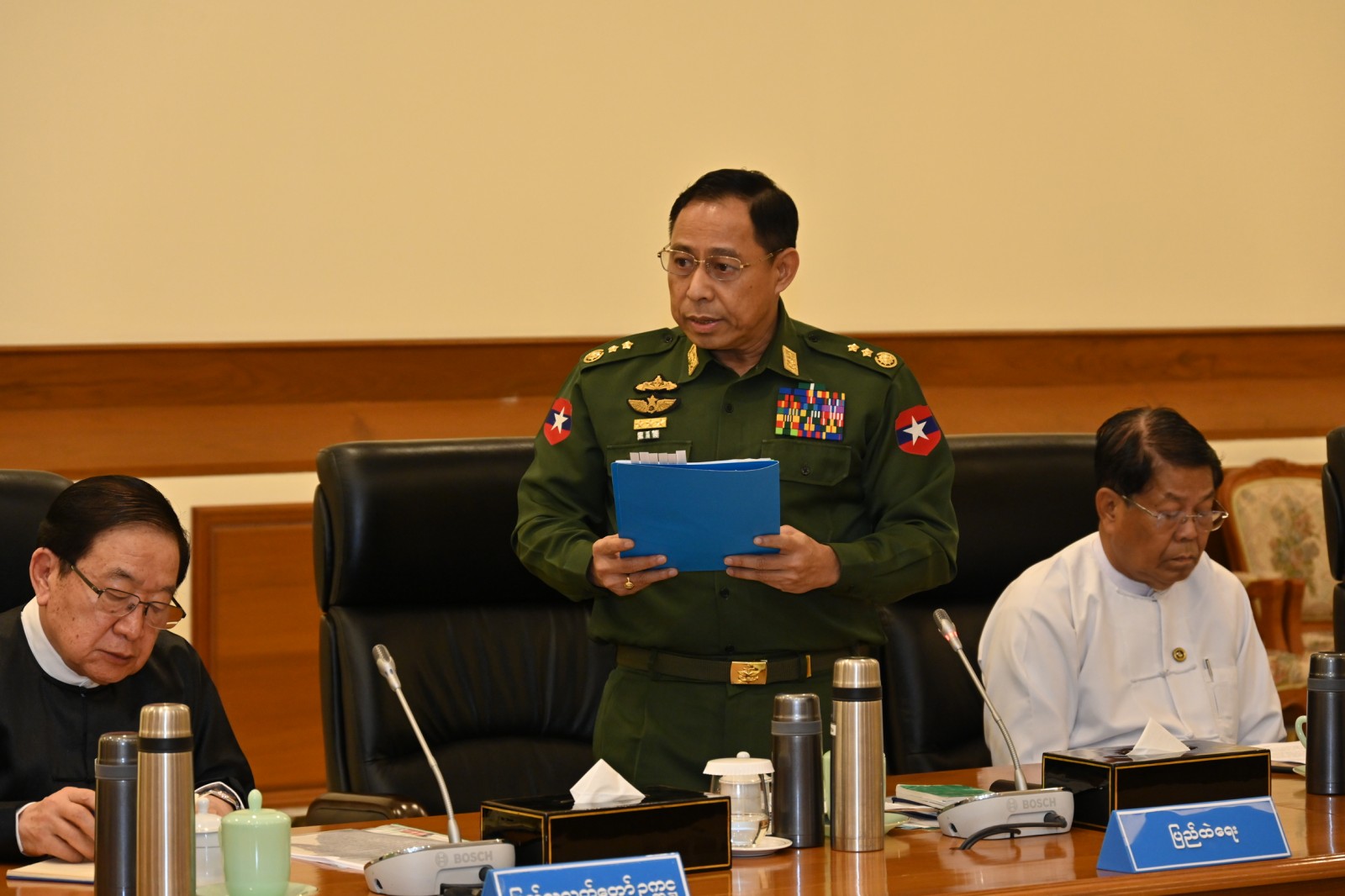The junta’s border affairs minister, Lieutenant-General Tun Tun Naung, has replaced Lt-Gen Yar Pyae, its home affairs minister, as the chairman of the National Solidarity and Peace Negotiation Committee (NSPNC), according to an official statement.
The replacement was made on Jan. 8, according to the junta gazette.
The new top negotiator, however, is not expected to achieve much.
Nothing will change no matter who takes the helm of the junta’s peace negotiation committee, a Myanmar-based political analyst said, explaining: “Myanmar is engulfed in civil war, and none of the armed groups fighting the regime will hold peace talks with it.”
Yar Pyae was also replaced as national security advisor by former navy chief Moe Aung, according to the gazette. He was a classmate of deputy junta chief Soe Win in the 22nd intake of the Defense Services Academy and served as the military’s key peace negotiator before and after the 2021 coup.
When Min Aung Hlaing replaced the National Reconciliation and Peace Center of the civilian government with the NSPNC in the wake of the coup, Yar Pyae was appointed its chief.
Lt-Gen Tun Tun Naung has served as border affairs minister since the 2021 coup despite frequent reshuffles in the regime. Along with transport minister Mya Tun Oo, and the secretary of the junta’s governing body, State Administration Council, Aung Lin Dwe, he is part of the 25th intake of the Defense Services Academy.

In response to international pressure and the war by resistance groups at home that emerged after the putsch, Min Aung Hlaing called 2022 the “Year of Peace” and invited leaders of ethnic armed organizations (EAOs) to peace talks. He conferred honorary titles on EAO leaders in order to persuade them to join peace talks. They included then Karen National Union (KNU) chairman Mutu Say Poe, Pa-O National Liberation Organization (PNLO) leader Khun Okkar and Restoration Council of Shan State (RCSS) chairman Yawd Serk.
Among the 10 signatories of the Nationwide Ceasefire Agreement (NCA), seven did not initially join the revolution but held talks with Min Aung Hlaing. Three others – the KNU, Chin National Front and All Burma Students Democratic Front – rejected talks with Min Aung Hlaing after the coup.
The seven that held talks with him are the Karen National Liberation Army Peace Council, PNLO, Arakan Liberation Party, RCSS, Democratic Karen Benevolent Army, New Mon State Party and Lahu Democratic Union.
Three EAOs that did not sign the NAC – the United Wa State Army, National Democratic Alliance Army and Shan State Progress Party – also held talks with the regime.
There was no fighting between the regime and the 10 EAOs that held talks with it until last month when the PNLO’s armed wing clashed with junta troops in southern Shan State.
Other EAOs were swift to support resistance to the regime. They included the Kachin Independence Army, Karenni National Progressive Party, and Chin National Front. The groups provided military training and weapons to young people who formed resistance groups collectively known as People’s Defense Forces (PDFs). The three EAOs have been fighting the regime alongside the PDFs.
Despite staging peace talks, the regime has carried out massacres and air raids in Magwe, Sagaing and Bago regions as well as Karen, Kachin and Rakhine states. Some of the deadliest air attacks –in Pazi Gyi Village in Sagaing Region and A Nang Pa in Kachin State – drew international condemnation.
The regime has lost over 30 towns in northern Shan State, Chin and Rakhine states and Sagaing Region to EAOs and PDFs following the launch of Operation 1027 and subsequent anti-regime offensives since late October of last year.
Though northern Shan State has seen fewer clashes recently due to mediation by China, fighting is escalating on other fronts, including Rakhine and Karen states.
Though Min Aung Hlaing is preaching peace, the regime spends a large portion of the national budget on defense. At the most recent National Defense and Security Council, Min Aung Hlaing vowed to crush the armed revolt against the junta.

















